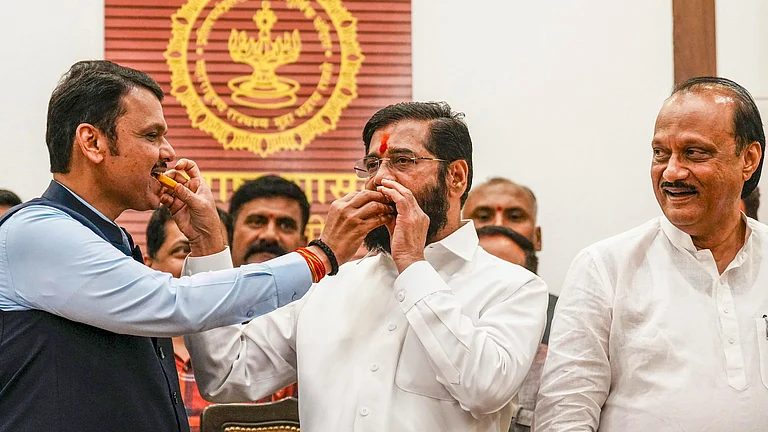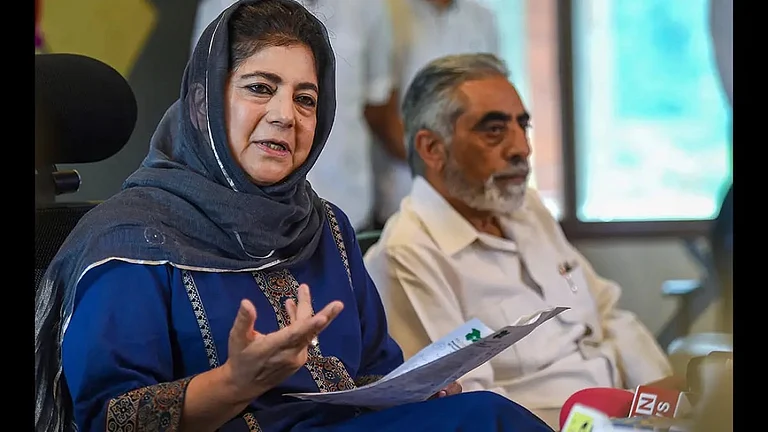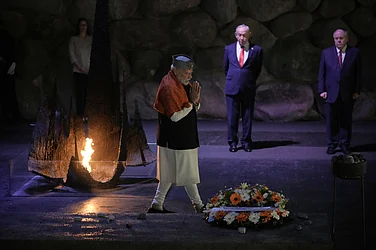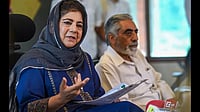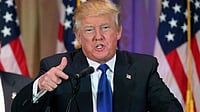Following his purchase of social media company Twitter, tech billionaire Elon Musk said it was essential for the "future of the civilisation" and to protect it from falling into the hands of extremists.
"The reason I acquired Twitter is because it is important to the future of civilisation to have a common digital town square, where a wide range of beliefs can be debated in a healthy manner, without resorting to violence," said Musk in a tweet.
Musk formally closed the deal to purchase Twitter by late Thursday, according to reports, which also added that he is restructuring the company's brass with a number of top executives, including Chief Executive Officer Parag Agrawal, being let go.
Following great speculation over the future of Twitter under him, Musk in a tweet laid out his vision for the platform under him, saying it's not a business pursuit for him but a social good. He said that while free speech would be respected on Twitter under him, it would be within legal limits.
Here we explain the vision for Twitter under Musk.
Free speech without extremism
This is not the first time that Musk has said that free speech on Twitter under him will not be limitless. The ongoing worldwide free speech versus hate speech debate has also taken Twitter's takeover by Musk into its ambit and there has been speculation how Twitter would regulate content under him.
Musk in April said that he is "against censorship that goes far beyond the law" and his free speech will be within the law of the land.
"By 'free speech', I simply mean that which matches the law...If people want less free speech, they will ask government to pass laws to that effect. Therefore, going beyond the law is contrary to the will of the people," said Musk in April.
In his post on Thursday, Musk made similar claims. He said Twitter cannot become a platform where there are no consequences.
He said, "Twitter obviously cannot become a free-for-all hellscape, where anything can be said with no consequences! In addition to adhering to the laws of the land, our platform must be warm and welcoming to all."
At the same time, it would be free to the extent that it does not become an ideological echo chamber.
"There is currently great danger that social media will splinter into far right wing and far left wing echo chambers that generate more hate and divide our society," said Musk.
Advertising on Twitter
Another major focus of Musk's post was how Twitter would go about advertising on the platform.
Musk made it clear that advertising on Twitter would me relevancy-based.
"Low relevancy ads are spam, but highly relevant ads are actually content," said Musk.
He added, "I also very much believe that advertising, when done right, can delight, entertain and inform you; it can show you a service or product or medical treatment that you never knew existed, but is right for you."
Musk summarised the vision from advertising point of view as: "Fundamentally, Twitter aspires to be the most respected advertising platform in the world that strengthens your brand and grows your enterprise."
Public expectations from Elon Musk
The public has its own share of expectations from Musk-run Twitter.
1. No compromise with free speech
Mainstream media and social media platforms have often been accused in recent years of proactive censorship on ideological grounds and based on political correctness. Even platforms like Reditt have resorted to blanket censorship on certain issues. The public expects this would end under Musk-run Twitter.
Musk has described himself as a free speech absolutist, but he has also emphasised that free speech would on the platform would be governed by the law of the land, as the law represents the will of the people.
2. More transparency in Twitter
There is an expectation of Musk to make Twitter more transparent, including making its algorithm public.
"Opening the code to show how Twitter engineers run the site is something that few social media platforms have done (Pixelfed and Okuna are fully open source) because they want to keep their internal processes private," noted science and technology magazine Popular Mechanics.
3. User verification to be introduced
In the press release that announced talks for purchase, Musk was quoted as saying that he would act to "authenticating all humans" on Twitter.
This is demanded as anonymous accounts have often been linked to hate speech and spamming. But anonymous accounts also several people to operate who cannot otherwise publicly operate.
"Presently, users can maintain anonymity on Twitter and while this has allowed some people to use social media bypassing workplace censorship or personal restrictions, these anonymous users have also engaged in trolling and hateful content. This has been flagged as a concern at times," noted Outlook earlier.
4. An edit button
A longtime demand of people has been to introduce an edit button allowing people to correct their typos or other embarrassing posts. Currently, there is no edit feature like Facebook or Instagram.
Musk has shown interest in the demand. In a Twitter poll by Musk in April, over 73 per cent people voted for an edit button.
Elon Musk's Twitter and Europe's data laws
Musk-run Twitter is also set to clash with Europe's data regulations, according to independent observers.
The Associated Press (AP) in April reported that Musk will be confronted with Europe's Digital Services Act, which will require big tech companies like Twitter, Google and Facebook-parent Meta to police their platforms more strictly or face billions in fines.
The act will come into effect in 2024, which was approved in April.
The debate in Europe is mostly around freedom versus regulation for public good debate.
Outlook earlier noted, "While people prefer free speech, it is feared that an absolutist approach would make abusive content free as well. While authenticating users would remove abusive trolls, it would also make the platform inaccessible to those who use Twitter secretively, either because of oppressive regimes or workplace or familial restrictions."
The laws of EU and UK in detail
The AP earlier reported that the laws in the United Kingdom and and European Union target online abuse. Under the EU's Digital Services Act, tech companies must put in place systems so illegal content can be easily flagged for swift removal.
Experts said Twitter will have to go beyond taking down clearly defined illegal content like hate speech, terrorism and child sexual abuse and grapple with material that falls into a gray zone.
This is all about assessing to what extent your users are seeing, for example, Russian propaganda in the context of the Ukraine war, online harassment or COVID-19 misinformation, according to Mathias Vermeulen of data rights agency AWO, as per AP, which adds that violations would incur fines of up to 6 per cent of a company's global annual revenue and repeat offenders can be banned from the EU.
The Digital Services Act also requires tech companies to be more transparent by giving regulators and researchers access to data on how their systems recommend content to users. There are similar expectations with Musk, including making Twitter alogorithm public.



